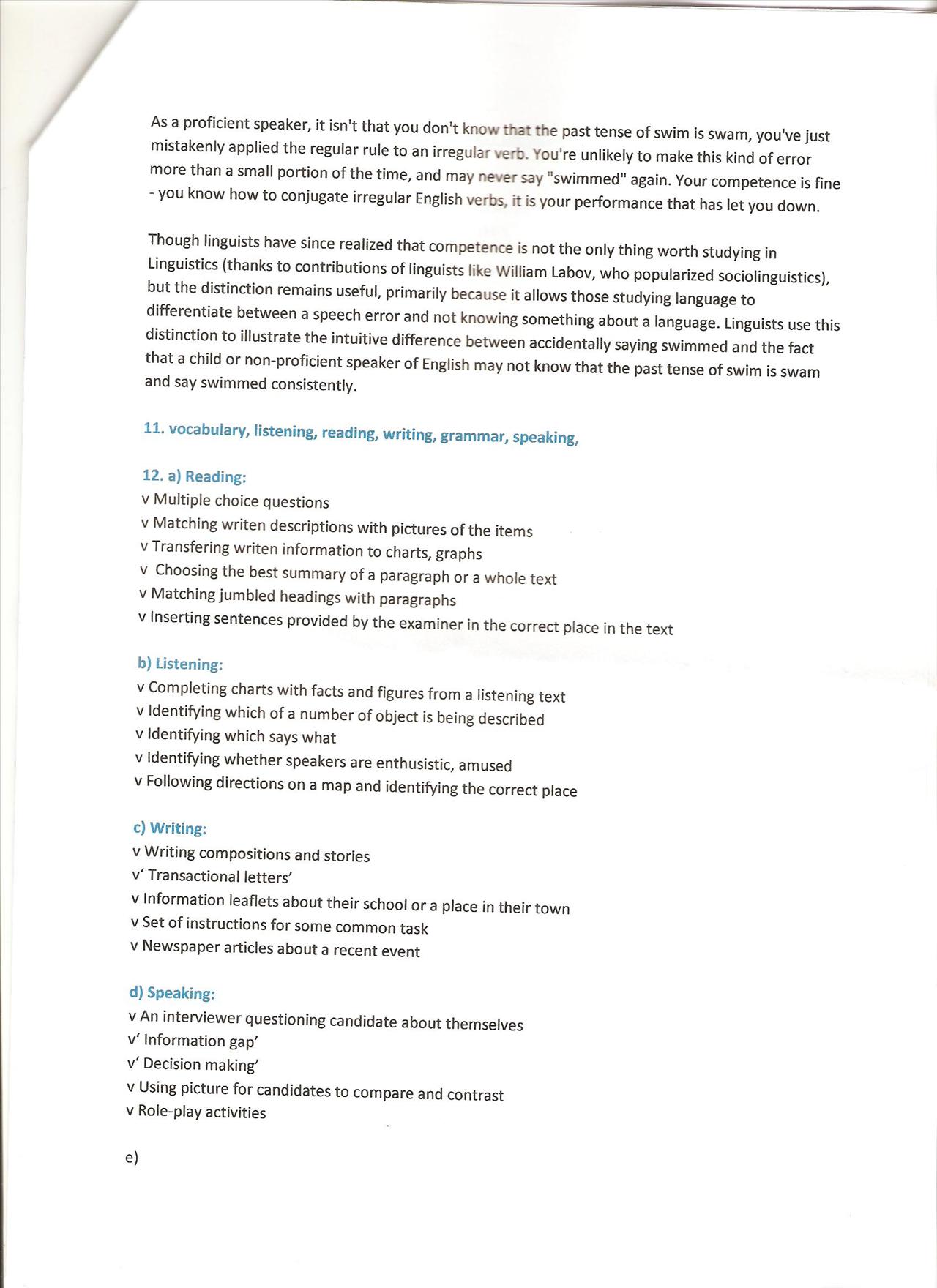Obraz (123)

As a proficient speaker, it isn't that you don't know that the past tense of swim is swam, you've just mistakenly applied the regular rule to an irregular verb. You're unlikely to make this kind of error morę than a smali portion of the time, and may never say "swimmed" again. Your competence is fine - you know how to conjugate irregular English verbs, it is your performance that has let you down.
Though linguists have sińce realized that competence is not the only thing worth studying in Linguistics (thanks to contributions of linguists like William Labov, who popularized sociolinguistics), but the distinction remains useful, primarily because it allows those studying language to differentiate between a speech error and not knowing something about a language. Linguists use this distinction to illustrate the intuitive difference between accidentally saying swimmed and the fact that a child or non-proficient speaker of English may not know that the past tense of swim is swam and say swimmed consistently.
11. vocabuiary, listening, reading, writing, grammar, speaking,
12. a) Reading:
v Multiple choice questions
v Matching writen descriptions with pictures of the items v Transfering writen information to charts, graphs v Choosing the best summary of a paragraph or a whole text v Matching jumbled headings with paragraphs
v Inserting sentences provided by the examiner in the correct place in the text
b) Listening:
v Completing charts with facts and figures from a listening text v Identifying which of a number of object is being described v Identifying which says what
v Identifying whether speakers are enthusistic, amused v Following directions on a map and identifying the correct place
c) Writing:
v Writing compositions and stories v' Transactional letters'
v Information leaflets about their school or a place in their town v Set of instructions for some common task v Newspaper articles about a recent event
d) Speaking:
v An interviewer questioning candidate about themselves v' information gap' v' Decision making'
v Using picture for candidates to compare and contrast v Role-play activities
e)
Wyszukiwarka
Podobne podstrony:
gramatyka 1 I A The past tense of certain verbsllNflinplcs ■» The sun rosę just after five o clock.
mbs 069 M BREATHING >Y>IKM phy.sicai culture, it is no wonder that the death-rate from consump
checks) allows InnoDB to verify as soon as possible that the running version of software can properl
About Instance Startup Whcn you start thc Oracle instance, you typically start it such that the Stat
330 (30) Pins faęon cTAngleterre (Longman and Loch 1911, 16). Although it appears that the repertoir
19 Volatile Fraction from Sagę (Salvia /..) Species • Finally, it seems that morę detailed analysis
It seems that the implementation and the realization of our workers self-management was chiefly gove
Liying space defined for alcohol policy to get $22 It said that the Department of Correctlons and tn
DSCF0037 ESSAYS IN 8WEDI8H HI8TORY It might appcar, then, that the tangible achievemcnts of aristocr
00492 ?6e2520b4751ef0af46b1927e1edb46 499 Achieving Quality Results Through Blended Management that
skanuj0003 (408) 122 MAŁGORZATA DURYDIWKA The conducted research proved that the cultural attractive
EUROPEAN UNIONUNION EUROPEENNE This is to certify that The Secretary General of the Council, High
off their foundations were also observed. Fuller (111 noted that the greatest deficiency of
There can be no doubt that the only aim of the ple-biscite was to mislead the whole world ab out the
img021 One may determine that the rea-son an individual is unstable in standing is in part due to hi
więcej podobnych podstron